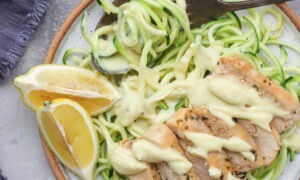Antibiotics and your gut
In my practice, I often hear concerns about safeguarding gut health while undergoing antibiotic treatment. Yes, antibiotics can be lifesavers, but let’s face it, they’re sometimes handed out like candy these days. And the result? So many Americans are walking around with depleted microbiomes and a laundry list of concerns. Antibiotics do not have to derail your gut health journey and I’m here to shed light on how you can show your gut some love, even in the face of antibiotics.
Do you find yourself cringing at the mere thought of antibiotics wreaking havoc on your gut? It doesn’t have to be that way. I’ve got some gems to share on how you can give your gut the TLC it deserves – before, during, and after your antibiotic journey.
How antibiotics impact the gut
Antibiotics play a crucial role in fighting bacterial infections, but their use can have unintended consequences on the delicate balance of gut bacteria, also known as the microbiota. Antibiotics are designed to target harmful bacteria, but they can also affect beneficial bacteria in the gut. This disruption can lead to dysbiosis, an imbalance in the gut microbiota, which may result in various gastrointestinal symptoms such as diarrhea, bloating, and abdominal discomfort. Furthermore, repeated or prolonged antibiotic use can have lasting effects on gut health, potentially increasing the risk of chronic conditions like irritable bowel syndrome (IBS) and inflammatory bowel disease (IBD).
What is dysbiosis
Picture your gut microbiota as a lush garden, teeming with diverse plants and organisms, each playing a vital role in maintaining its beauty and functionality. Just like in a garden, there are beneficial microbes, acting as vibrant flowers, and harmful ones, resembling invasive weeds. When antibiotics are introduced, it’s akin to a sudden downpour of herbicide, indiscriminately targeting both the weeds and the flowers. As a result, the once-balanced garden becomes overrun with weeds, choking out the colorful blooms and disrupting the natural harmony. This imbalance, known as dysbiosis, can leave the garden vulnerable to decay and disease, with wilted flowers and barren patches where lush foliage once thrived. Restoring balance to the garden requires careful cultivation, removing the weeds while nurturing the remaining plants back to health, ensuring the garden can once again flourish in all its glory
How to tend to your gut garden
Tending to your gut garden is not just important when you are on antibiotics. Its important all year long so that should the circumstance arise where you might need antibiotics, your gut is in a solid place.
To nurture your gut garden and mitigate the impacts of antibiotics, consider incorporating these key practices into your daily routine.
- Firstly, prioritize a diverse diet rich in plant-based foods, aiming to consume at least 30 different types of plants each week. This variety provides a wide array of nutrients and fiber to support the growth of beneficial gut bacteria.
- Dietary Diversity: Additionally, focus on incorporating plenty of prebiotic-rich foods, such as garlic, onions, bananas, and asparagus, which serve as fuel for the growth of healthy gut microbes.
- Stress Management: Managing stress is also crucial, as prolonged stress can diminish the diversity of the gut microbiota. Practice stress-reducing techniques like meditation, deep breathing exercises, or engaging in activities you enjoy.
- Quality Sleep: Lastly, prioritize getting ample, high-quality sleep each night, as sleep deprivation can disrupt gut health and compromise immune function. By tending to your gut garden with these practices, you can help maintain a thriving microbiome, even in the face of antibiotic challenges.
Minimizing side effects while on antibiotics
To minimize the side effects of antibiotics, consider implementing these strategies into your routine.
- Saccharomyces boulardii: Firstly, if you’re taking saccharomyces boulardii, ensure you take it at least 4 hours away from food to maximize its effectiveness.
- Dietary Diversity: Next, prioritize consuming a diverse diet, rich in fruits, vegetables, whole grains, and other fiber-rich foods. This diversity provides essential nutrients and promotes the growth of beneficial gut bacteria, helping to counteract the disruptive effects of antibiotics.
- Prebiotic Support: Additionally, consider taking a prebiotic supplement, such as acacia fiber, sun fiber, or bimuno, to further support the growth of healthy gut microbes.
- Hydration: Finally, remember to stay hydrated by drinking plenty of water throughout the day, as adequate hydration is essential for overall health and can help alleviate some common side effects of antibiotics, such as dehydration and digestive discomfort.
By incorporating these tips into your antibiotic regimen, you can help minimize side effects and support your gut health during treatment.
How to repair your gut after antibiotics
To aid in the recovery of your gut post-antibiotics, consider implementing these effective strategies.
- Spores: Firstly, introduce spore-based probiotics into your daily routine to help replenish and diversify your gut microbiota, aiding in the restoration of balance and resilience.
- Immunolin: Additionally, supplementing with 1-5 grams of immunolin daily can support the removal of antigens and promote the health of your gut lining, crucial for optimal digestive function and overall well-being.
- Dietary diversity: Maintain a diverse diet rich in a variety of plant-based foods, as this provides essential nutrients and fiber that nourish your gut bacteria and support its recovery process.
- Prebiotic support: This is almost more important than the spores as the prebiotic fiber is the fuel for the spores. Take a prebiotic supplement to help aid in the growth of beneficial bacteria
By incorporating these tips into your post-antibiotic regimen, you can help expedite the restoration of your gut health and minimize any lingering effects of antibiotic treatment.
Safeguarding your gut health amidst antibiotic use is a top priority. By proactively nurturing your gut before, during, and after antibiotic treatment, you can minimize disruption and support its resilience. Remember to prioritize a diverse diet, rich in plant-based foods, and consider supplementing with prebiotics and probiotics to replenish and diversify your gut microbiota. Additionally, managing stress levels and prioritizing quality sleep are essential components of overall gut health. Should antibiotics become necessary, fear not; armed with these strategies, you can navigate the antibiotic terrain with confidence and emerge with your gut health intact. So, here’s to nurturing your gut garden, cultivating resilience, and thriving in the face of challenges. Your gut—and your overall well-being—will thank you for it. Cheers to a vibrant, thriving gut and a healthier, happier you!
Struggling with GI issues and need support?
Take our free quiz to determine the cause of your GI issues here
All of our recommended products are available here on Fullscript. You do have to make a free account in order to access the products and purchase at a 15% discount. This is not medical advice. Please consult your medical provider before trying anything new.
Keywords: antibiotics, gut health, probiotics, microbiota, prebiotics, dietary tips, probiotic supplementation, post-antibiotic recovery, long-term maintenance, healthy lifestyle.









